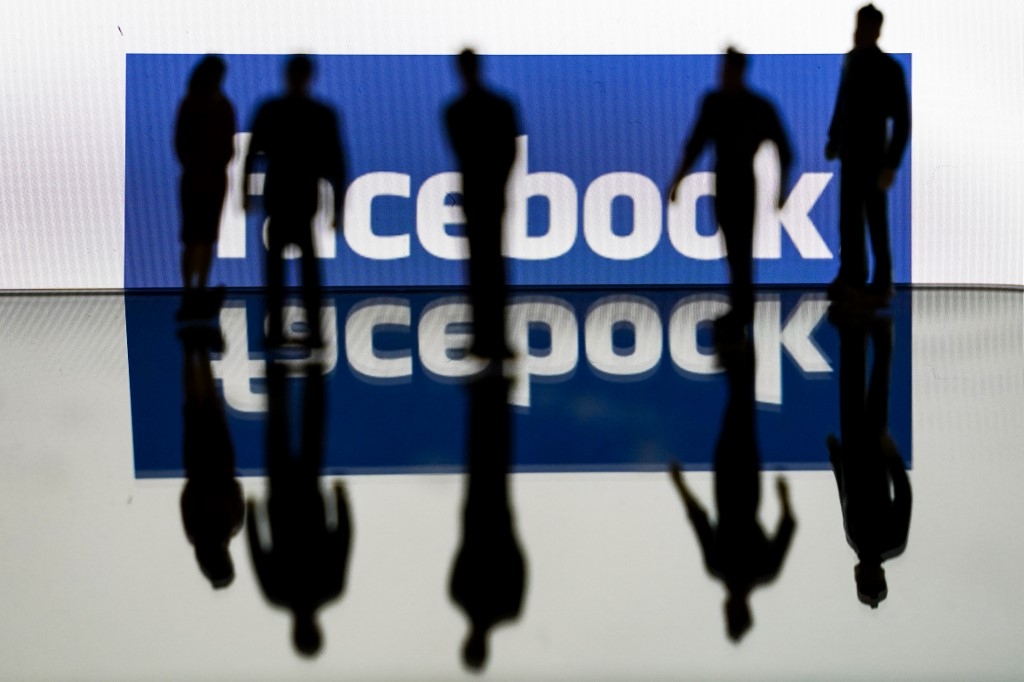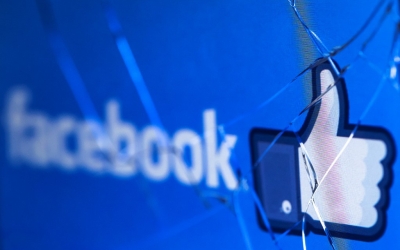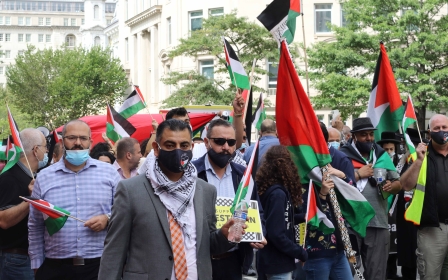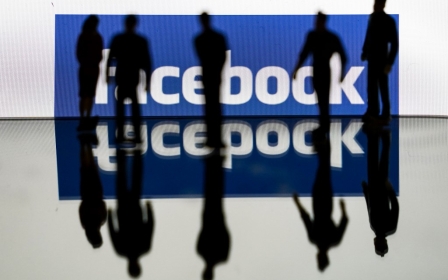Facebook accused of censoring Palestinians under pretext of fighting hate speech

Facebook has been accused of repeatedly stifling Palestinian voices under the pretext of preventing hate speech, a new report has alleged.
The analysis says Facebook's Community Guidelines - a mechanism partly aimed at preventing hate speech - does not have a clear definition of antisemitism and is to blame for the muzzling of Palestinian voices on its social media platforms, including Instagram.
"Though there is international recognition that Palestinians' right to free speech online is under attack through restrictions and limitations, there have not been actions taken to lessen these," wrote Alysia Grapek, the author of the report, "Facebook Censors Palestine".
'Facebook has a history of complying with the Israeli government's requests to delete Palestinians' accounts, as well as block and filter content'
- Facebook Censors Palestine report
Facebook's Community Standards are an outline of what is and is not allowed on its platform. It routinely removes posts for reasons including harassment and bullying, graphic violence and hate speech.
Yet these same reasons have been cited for the removal of posts by Palestinian-Dutch supermodel Bella Hadid, as well as Palestinian-American professor Noura Erakat.
Hadid posted a photo of her father's Palestinian passport, which was subsequently deleted, while Erakat posted about her cousin, shot dead by Israeli soldiers.
For years, Facebook has faced allegations of deactivating the accounts of Palestinians in coordination with the Israeli government and security agencies, on the pretext of preventing Palestinian "incitement".
In May, Middle East Eye reported that more than 50 Palestinian journalists and activists had their profile pages deleted by Facebook, alongside a notification saying their pages had been deactivated for "not following our Community Standards".
No clear definition of antisemitism
Grapek found in her research that some of the keywords that led to censorship include the words: martyr, resistance, Hamas and Hezbollah.
Another problem she noted was Facebook's lack of a clear definition of antisemitism, which has led to the removal of many posts that were critical of the Israeli government.
"As of September, 2020, Facebook does not have an official definition for what is anti-Semitic. Because of this, interpretation is a factor in what is censored under this category," the report said.
The analysis noted that many posts flagged as antisemitic "did not show what could be directly interpreted as hate speech about Jews or harmful Jewish stereotypes".
Some posts using the phrase "illegal settlers" ended up being banned, according to the analysis.
"My recommendation would be to specify their language in the community standards," she told Middle East Eye.
"Not only will this lower, kind of, the scope of how they interpret content, it will allow users to understand why their content has been censored, give them information so they can move forward with that rather than it being used for oppression - and may even lower the rate of content that they have admitted to being mistakenly censored."
Grapek also said Facebook needs to be "transparent in its interpretation and... implementation of these community standards".
Facebook's Oversight Board
JVP, which posted Grapek's report on their website on Wednesday, took part in a day of action calling on Facebook to stop silencing Palestinians, organised by the coalition "Facebook, Stop Censoring Palestine".
The coalition is urging the social media behemoth to remove Emi Palmor from its Oversight Board.
The board, described by CEO Mark Zuckerberg as Facebook's "Supreme Court", has the mandate to take "final and binding decisions on whether specific content should be allowed or removed" from Facebook and its other entities, including Instagram.
Palmor, the former director-general of the Israeli justice ministry, was elected to Facebook's Oversight Board earlier this year. At the Justice Ministry, Palmor saw the creation of Israel's "Cyber Unit" in 2016, an agency reportedly used to stifle and suppress Palestinian content on Facebook.
"The unlawful work of the Cyber Unit under Palmor resulted in increased takedowns of thousands of pieces of Palestinian content," JVP said.
JVP's Director of Communications, Granate Kim, stressed in a statement to MEE that keeping Palmor on its board would lead to the continued censorship of Palestinian voices.
"A true oversight board would be concerned about the rights and freedom of speech of people living under brutal occupation and apartheid," Kim said.
Alison Carmel, the international relations manager at the Arab Center for the Development of Social Media (7amleh), told MEE that the board was simply a way to avoid external scrutiny.
"The Facebook Oversight Board is a power game, a way for Facebook to try and escape true international regulation and accountability, and we should not be distracted by their public relations efforts and keep shedding light on how companies are supporting their efforts," Carmel said.
MEE reached out to Facebook for comment but did not receive a response by time of publication.
Middle East Eye propose une couverture et une analyse indépendantes et incomparables du Moyen-Orient, de l’Afrique du Nord et d’autres régions du monde. Pour en savoir plus sur la reprise de ce contenu et les frais qui s’appliquent, veuillez remplir ce formulaire [en anglais]. Pour en savoir plus sur MEE, cliquez ici [en anglais].





